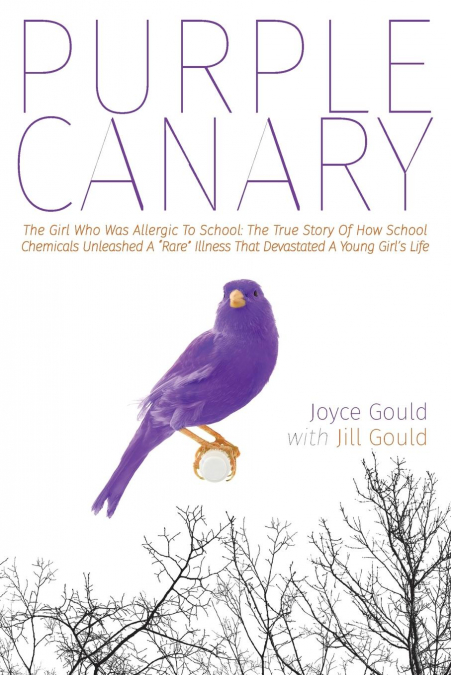
Joyce Gould
Bizarre symptoms and debilitating neurological attacks that happened only at school upended eleven year old Jill’s world. Skeptical medical specialists attributed the odd, recurrent symptoms to the adoptee’s biological inheritance then to a mental illness. Disbelieving school officials labeled her an attention-seeking faker. Jill and her mother Joyce insisted the symptoms had a physical base. Medical experts were shocked when DNA testing proved that the mutant gene associated with a “rare,” genetic metabolic/enzyme disorder was harbored in Jill’s liver. Acute Intermittent Porphyria is seldom identifi ed in U.S. adults, never mind children. Through it all, Joyce was on the hunt for a connection between the school and the relentless symptom and temporary treatment merry-go-round. Finally, she found it. Jill was ultrasensitive to chemical fumes that permeated the local school buildings. She was literally allergic to school—a “purple canary” harbinger of an inherent danger in today’s chemical-laden education facilities. Purple Canary is more than a tale of a girl and her mother struggling for answers. It’s a story of mother’s intuition; medical misdiagnoses; special education categories; contemporary school bullying; a school chemical toxicity/illness connection; questionable academic and medical ethics and the simple truth that we all fear what we don’t understand. 3